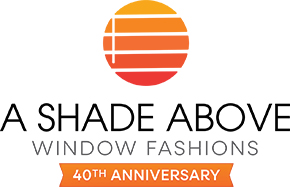Hunter Douglas to Discontinue Cords on Blinds Systems due to Safety

Fort Lauderdale, Florida, May 15 – In a major shakeup for the window treatment industry, Hunter Douglas – the nation’s leading manufacturer of shades and blinds – announced it is discontinuing traditional cords on vertical and horizontal blinds. The decision was made after the Consumer Products Safety Commission announced a ban on free hanging window treatment cords due to child safety concerns.
The ban is being challenged in court by the Window Covering Manufacturers Association, which has agreed to the elimination of certain corded systems but is fighting to keep other cord options available to consumers.
Hunter Douglas is the first major manufacturer in the United States to voluntarily agree to some of the safety commission’s new protocols. Beginning on May 30th, Hunter Douglas will only sell horizontal wood and faux blinds with cordless shade lift systems. The New York based company will no longer permit cords on vertical blinds, instead requiring a traveling wand system.
“It will definitely be a change for consumers who are used to basic vertical and horizontal blinds that easily lift or slide with a cord,” said Andrew Abramson, president of A Shade Above Window Fashions in Davie, Florida, the nation’s first Hunter Douglas gallery. “For wood blinds, a cordless system is actually sleeker, but there will be limitations on taller windows where consumers can’t easily reach the top.
“The million dollar question is what happens in court, and whether a judge decides these voluntary measures are enough to alleviate safety concerns, or if the Consumer Products Safety Commission will succeed in eliminating nearly all cords on shades and blinds.”
While other manufacturers will continue selling corded blinds and verticals for now, it is expected that these cords will be banned nationwide once the court case is resolved.
The Window Covering Manufacturers Association, led by Hunter Douglas, has argued that a ban on most cords for roller shades and other shaded products is unnecessary because of technological improvements on cord tensioners that has made them safer for consumers.
“Eliminating most cords, which happened in Canada recently, will be onerous for consumers,” Abramson said. “The most problematic cords, like the ones you find on vertical and horizontal blinds, are on their way out. But safety issues on roller shade cords are rare. If most cords are banned, you’ll see a major push toward cordless and motorized shades, which is a fantastic option for some people but isn’t ideal for everyone.”

